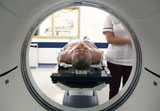Throat Cancer Radiotherapy
Throat cancer, which is also known as laryngeal and pharyngeal cancer, is among the most common types of cancer in the United States. Statistics published by the National Cancer Institute have established that they are projecting 12,740 new cases of laryngeal cancer and 13,580 new cases of pharyngeal cancer for this year. There are numerous symptoms that can indicate the existence of throat cancer, and if detected early, a patient can receive throat cancer radiotherapy. In addition, surgery is done in order to remove the tumor(s), if possible; some oncologists will remove your lymph nodes just in case the cancer has already spread to it.
Symptoms of Throat Cancer
Throat cancer can be detected fairly easy when compared to silent diseases, such as pancreatic cancer. There have been cases where patients develop large tumors in their throat, but the cells happen to be benign, posing no real harm for the patient. However, there are numerous symptoms that will indicate the presence of a strange mass in your throat, and some of them are:
- Incurable and persistent cough
- Alterations of the voice
- Loss of weight
- Difficulty when breathing
- New lump around the neck
- Sore throat
- Bad breath
- Ear infection or discomfort
- Stridor
Risks Factors
Despite the fact that there is throat cancer radiotherapy, there are factors that can make the development of throat cancer easier. For example, a smoker has more probabilities than non-smokers at developing lung cancer, throat cancer, and even pancreatic cancer; furthermore, statistics have shown that there are 20 more deaths due to throat cancerwhen it comes to smokers. In addition, people who consume great amount of alcohol have also greater chances of eventually developing throat cancer.
Also, patients who have had cancer either in the neck or head, have 25% more probabilities of developing throat cancer. However, if the patient has already undergone treatment for the previous type of cancer, they will most certainly be on the close watch from their physician. If and when the tumor is detected in the throat, it can be removed with the help of surgery, but in order to damage and kill the cancerous cells, the patient should receive throat cancer radiotherapy.
Treating Throat Cancer
Whether you are diagnosed with throat cancer or any other type of cancer, the treatment can only be designed and administered by your specialist. This means that not every treatment is the same because there are numerous factors that affect the length and the type of treatment to be administered. Undoubtedly, the majority of cancers are treated using radiotherapy, chemotherapy and surgery; at times, the three of them might be performed to treat a person, depending on the overall health state.
Besides receiving throat cancer radiotherapy, patients can also opt to participate in other types of therapies that will help them cope with the emotional stress of being ill. For example, a lot of throat cancer patients attend meetings with a spiritual counselor, while others choose to see a psychologist. These types of therapy help the body, as well as the soul of the cancer patient.

